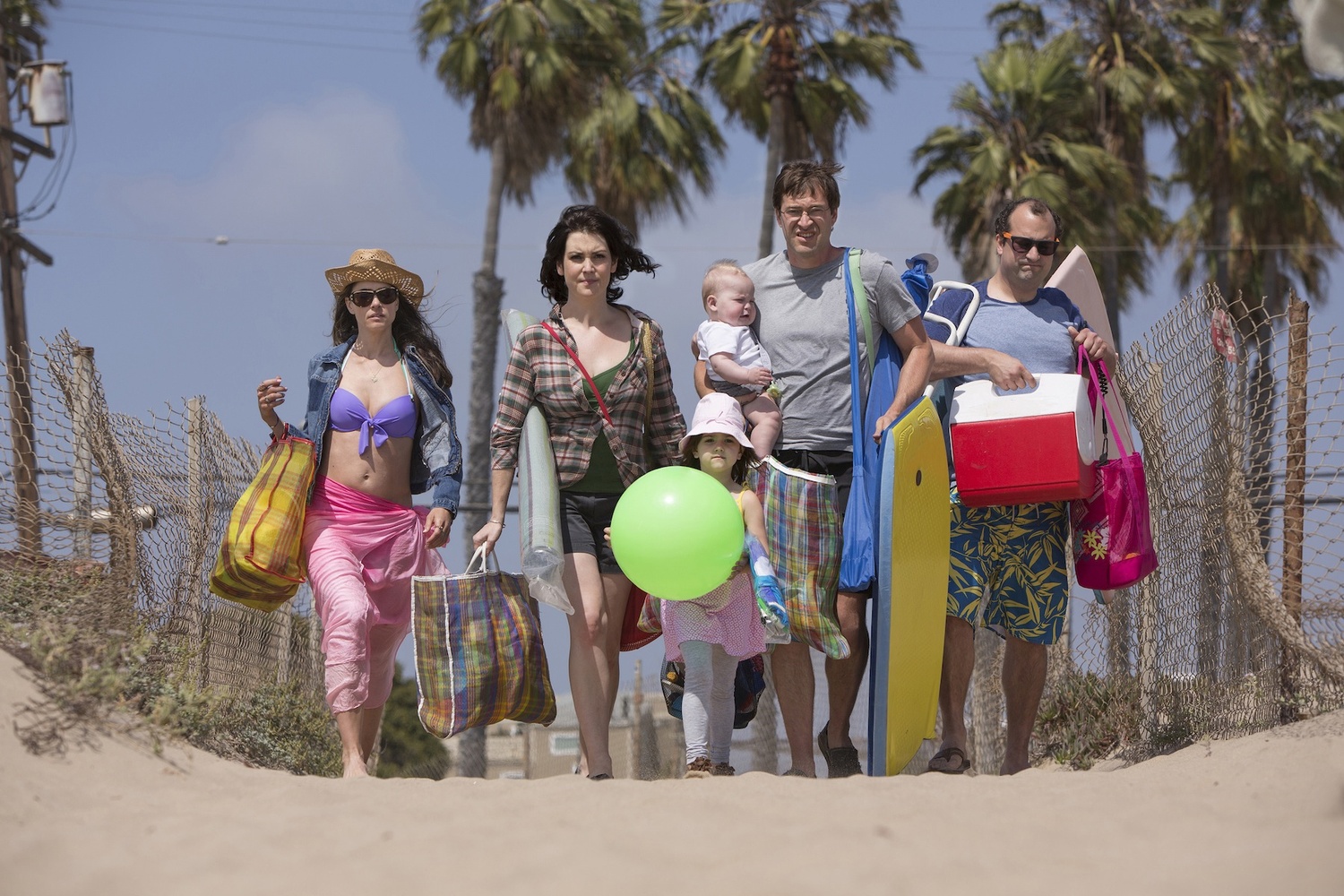
News
HMS Is Facing a Deficit. Under Trump, Some Fear It May Get Worse.

News
Cambridge Police Respond to Three Armed Robberies Over Holiday Weekend

News
What’s Next for Harvard’s Legacy of Slavery Initiative?

News
MassDOT Adds Unpopular Train Layover to Allston I-90 Project in Sudden Reversal

News
Denied Winter Campus Housing, International Students Scramble to Find Alternative Options
'Togetherness' is a Flaccid Depiction of Marriage
“Togetherness” should be a great show. After an eight-episode first season, the self-indulgent yet down-to-earth comedy-drama has returned to HBO. It is produced, written and directed by the Duplass Brothers; Mark, the more famous of the two, has acted in eclectic roles ranging from farcical fantasy football comedy “The League” to mediocre supernatural horror film “The Lazarus Effect." Here Mark Duplass plays Brett Pierson, a newly rededicated husband and father of two. His wife, Michelle—played by Melanie Lynskey—has recently slept with another man. The cast is filled out by Tina, Michelle’s sister, whose countenance embodies her emotional dishevelment, and Mark’s best friend, Alex, a sad sack turned moderately successful actor.
Plot and setting are simultaneously disregarded in and integral to the artistic message of the Duplass brothers. The characters visit Alex, who has temporarily moved to New Orleans to act in a small vampire movie, for his birthday. They have dinner. They go to a club. Half the runtime is dedicated to the purchase of a gift that will likely never be seen again. The pinnacle of an exotic activity is late night karaoke. Even the city of New Orleans—so often portrayed in media as loud and boisterous—feels soulless through the lens of Brett and Michelle’s experiences. There is nothing inherently wrong with this approach. The Duplass Brothers have sought to create a show that reflects, within reason, ordinary experiences that most married couples have been through. At the ordinary, they have succeeded. Precisely because of this mundanity, the Duplass Brothers are able to examine the nature of everyday relationships.
Duplass and Lynskey do their best to inhabit this vision. Mark Duplass especially channels his eclectic filmography, equal parts horrifying and amusing as a husband frenetically attempting to convince his wife of his commitment to their marriage. Even Amanda Peet and Steve Zissis, Tina and Alex respectively, have a chemistry that lends emotional potency to simple scenes.
The problem of characterization in “Togetherness” does not lie in the actors’ portrayal of the characters but in the limited emotional material these talented actors are given. Every character is unpleasantly normal. It is as if the Duplass brothers created the same character four times, slapped on one or two traits they found amusing, and gave each a few identifiable emotions. Each feels like a character in a short story. After 30 minutes, the viewer knows the whole of the humanity with which the Duplass brothers have attempted to imbibe these characters. The show feels like the unpleasant marriage it attempts to portray: dull, repetitive and unfailingly unsurprising.
In the closing moments of the season premiere, Brett, with characteristic sad enthusiasm, proposes marriage to his wife again. In one of the finest moments for the writers and Lynskey, the viewer is privy to her intellectual understanding of the graciousness of the gesture and her simultaneous and instinctive understanding of the emotional bankruptcy of the proposal. The series begins to play out in the same way—a sequence of empty motions that mean to convey emotion, yet fail because like Michelle, we know too much of the simple characters to love them. “Togetherness” should be a great show and scenes like this deliver the promise of a good show. It simply fails at being an interesting one.
Want to keep up with breaking news? Subscribe to our email newsletter.

